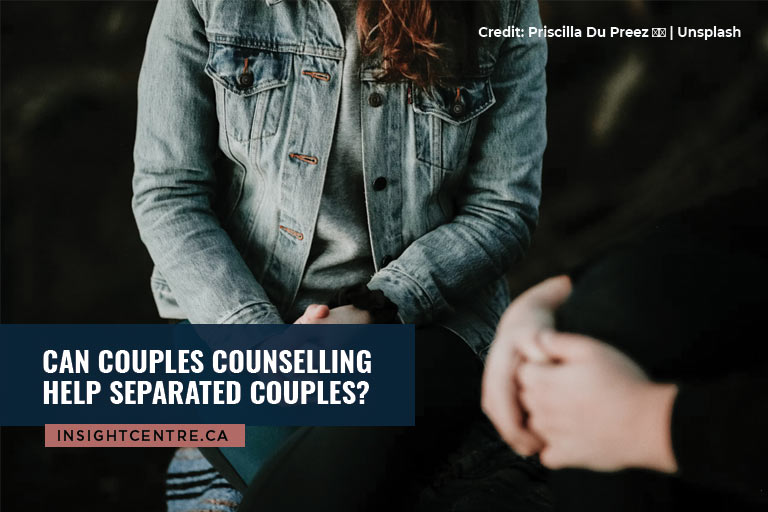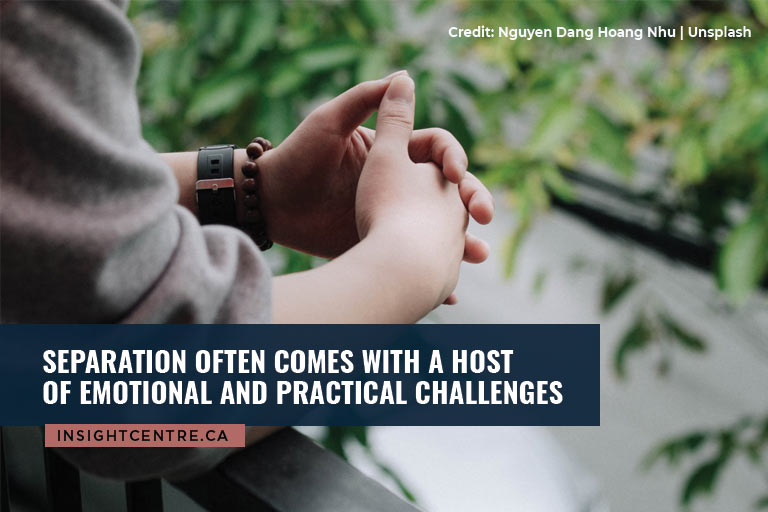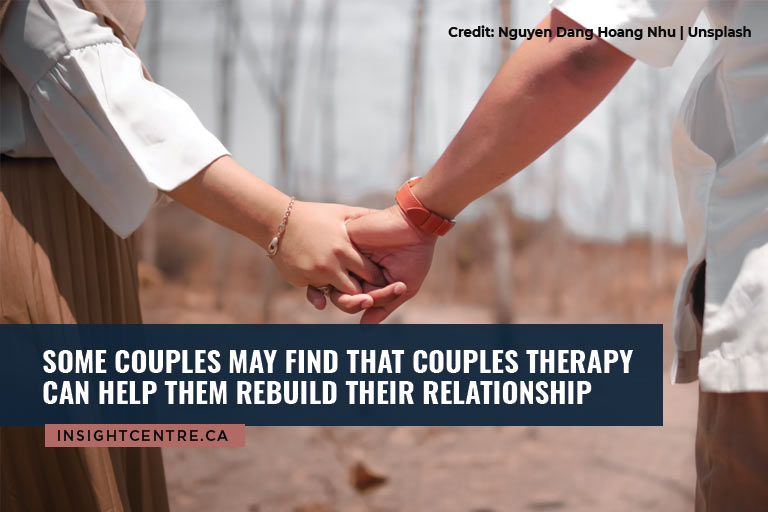Can Couples Counselling Help Separated Couples?

Couples counselling is often associated with strengthening relationships, but can it also help couples who have already separated? While it might seem counterintuitive, couples therapy can be a valuable tool for separated couples, especially when dealing with difficult emotions, unresolved issues, and the complex process of separation or divorce.

Challenges Faced by Separated Couples
Separation, a significant life transition, often comes with a host of emotional and practical challenges. As couples go through this difficult period, they may encounter various obstacles that can impact their well-being and future.
Emotional Turmoil
- Grief and Loss: The end of a relationship, even a troubled one, can lead to feelings of grief and loss. Mourning the loss of a shared future and the dreams associated with it is a common experience. Essentially, you are grieving the loss of “the relationship, routine, and even identity”.
- Anger and Resentment: Separation can trigger strong emotions, including anger and resentment. These feelings may arise from unresolved issues, betrayal, or unmet expectations.
- Guilt and Shame: Some individuals may feel guilty or ashamed about the failure of their relationship, particularly if they believe they could have prevented the separation.
- Anxiety and Stress: Uncertainty about the future, financial concerns, and the impact on children can contribute to significant anxiety and stress.
Practical Challenges
- Financial Implications: Dividing assets, establishing child support, and maintaining separate households can create financial strain.
- Child Custody and Co-Parenting: Disagreements about child custody arrangements, visitation schedules, and parenting styles can lead to conflict and tension.
- Housing and Living Arrangements: Finding suitable housing, especially for single parents, can be a significant challenge, particularly if financial resources are limited.
- Social and Family Dynamics: Separated couples may face difficulties in maintaining social relationships and dealing with well-meaning but intrusive family members.
- Legal Proceedings: The legal process of separation or divorce can be lengthy, costly, and emotionally draining.
Overcoming Challenges
While the challenges of separation can be overwhelming, there are strategies to cope and move forward:
- Seek Professional Help: A therapist or counsellor can provide emotional support and guidance, helping individuals process their emotions and develop coping mechanisms.
- Communicate Effectively: Open and honest communication, even when it’s difficult, is crucial for resolving conflicts and making important decisions.
- Prioritize Self-Care: Taking care of one’s physical and mental health is essential during this challenging time.
- Build a Support Network: Lean on friends, family, or support groups for emotional support and practical advice.
- Focus on the Future: It’s important to acknowledge the past. However, it’s equally vital to look towards the future and set new goals.
How Couples Counselling Can Benefit Separated Couples
Even though a couple may have decided to separate, there are still significant benefits to seeking couples therapy. Here are some key reasons why:
Improved Communication
One of the primary reasons relationships break down is poor communication. Couples therapy provides a safe and neutral space for both partners to express their feelings honestly and openly, without fear of judgment or retaliation. A skilled therapist can help identify communication patterns that may be contributing to the problems and teach healthier ways of communicating.
Emotional Processing
Separation can evoke a range of intense emotions, including anger, sadness, guilt, and fear. Couples therapy can help both partners process these emotions in a healthy way, reducing the likelihood of emotional outbursts and destructive behaviour.
Emotional Support
The separation process can be emotionally draining for both partners. A therapist can offer emotional support and help them cope with feelings of sadness, anger, guilt, or loss.
Clarifying Expectations
When a couple separates, it’s essential to clarify expectations for the future, such as child custody, property division, and co-parenting arrangements. A therapist can help facilitate these conversations, ensuring that both parties feel heard and understood.
Co-Parenting Strategies
If children are involved, couples therapy can help parents develop effective co-parenting strategies. This includes discussing child custody, visitation schedules, and how to communicate about their children’s needs.
Building a Bridge to the Future
Whether the goal is reconciliation or a more amicable separation, couples therapy can help build a bridge to the future. By addressing past issues and developing new communication skills, couples can move forward with greater peace and understanding.
Closure and Moving On
In some cases, couples therapy can provide a space for closure and healing. This can help both partners move on from the relationship and start new chapters in their lives.

How Couples Therapy Can Help Reconcile
While not all separated couples choose to reconcile, some may find that couples therapy can help them rebuild their relationship. Here’s how:
Identifying the Root Causes
A skilled therapist can help identify the underlying issues that led to the separation, such as unresolved conflict, infidelity, or lack of intimacy.
Rebuilding Trust
Trust is the foundation of any healthy relationship. Couples therapy can help rebuild trust by encouraging honesty, transparency, and accountability.
Rekindling Intimacy
Physical and emotional intimacy are crucial components of a fulfilling relationship. Couples therapy can help couples reconnect on an intimate level by addressing any underlying issues that may be hindering intimacy.
Committing to Change
Reconciliation requires a commitment to change from both partners. Couples therapy can help couples develop a shared vision for the future and create a plan for making positive changes.
When to Seek Couples Therapy Before Separation
While separation may seem inevitable, it’s worth considering couples therapy as a last resort. Here are some warning signs that indicate your relationship may be deteriorating and could benefit from professional intervention:
Frequent Arguments and Conflict
Constant disagreements and heated arguments can erode the foundation of a relationship.
Lack of Communication
A decline in meaningful conversations and emotional connection can lead to growing distance and resentment.
Emotional distance
Feeling emotionally detached or disconnected from your partner can signal underlying issues that need to be addressed.
Infidelity
Betrayal of trust can severely damage a relationship and require significant effort to rebuild.
Domestic Violence
Any form of physical, emotional, or psychological abuse is a serious red flag and requires immediate intervention.
Substance Abuse
Addiction can negatively impact relationships, leading to conflict, neglect, and emotional turmoil.
If you recognize these signs in your relationship, seeking the guidance of a qualified couples therapist can help you and your partner assess the situation, improve communication, and look into potential solutions. Remember, seeking help is a sign of strength, not weakness.
Seek a Trusted Therapist in Barrie or Toronto
If you’re in Barrie or Toronto considering couples therapy, don’t hesitate to reach out to a qualified therapist. The sooner you seek help, the better your chances of resolving your relationship issues.
Call Insight Centre Counselling & Psychotherapy today at +1 647-633-1928 to schedule a consultation and take the first step towards healing and growth.



